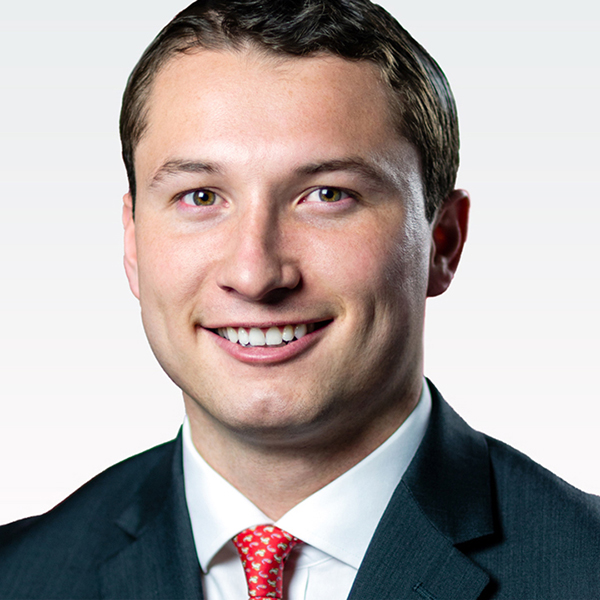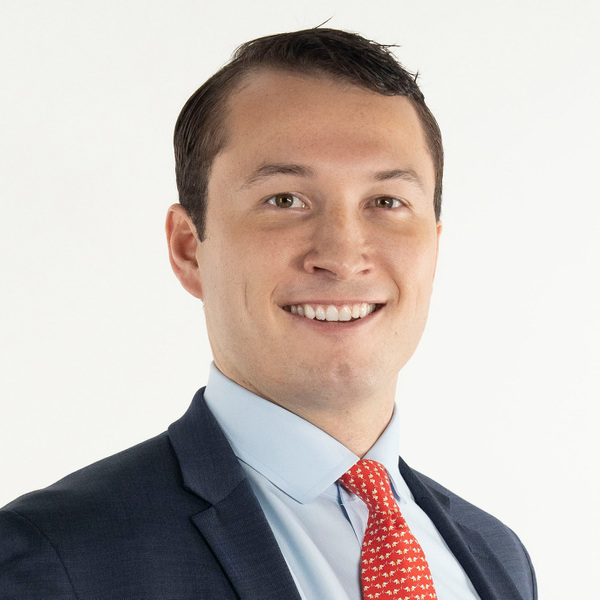We sit down with Michael Russell to talk about growing up in a family business and forging your own path. In his role as director of partnership sales for Fenway Sports Management (FSM), Russell is responsible for selling and crafting partnerships for Liverpool Football Club and SpringHill Co./Uninterrupted (companies owned and operated by Lebron James and Maverick Carter). Prior to joining FSM, he spent time at Live Nation and the National Basketball Association (NBA). He is a graduate of The University of Virginia’s Frank Batten School of Leadership and Public Policy.
Let’s start with your experience growing up in a family that runs a private business.
My grandfather started H.J. Russell & Company based in Atlanta in the 1960s, and my father is the CEO of the company today. Growing up, my grandfather had each of his grandchildren work for the company during the summer. He had us doing everything from visiting job sites, organizing the office, shredding papers – you name it. Truthfully, I just enjoyed being around him and picking up on how he conducted business. The older I got, the more I realized construction wasn’t necessarily my passion. Due to various internships in high school and college, I became interested in politics, ultimately majoring in leadership and public policy, which I knew was an area that I’d want to get into later in life. Sports have always been a passion of mine, as I played numerous sports growing up. While searching for a job during my senior year at University of Virginia (UVA), I stumbled upon a rotational program at the NBA that allowed me to work in a variety of departments ahead of settling into one permanently. I was fortunate enough to make it through several rounds of the interview process and start my career in sports and entertainment.
Philanthropy is also a passion of yours. How have your experiences shaped your outlook on giving back?
My family – and specifically, my mom – taught me the value of giving back early on in life. I was taught that donating your money is important, but just as important was donating your time. My mom had us involved in giving back for as long as I can remember. Later in my career, I did as much work as I could with NBA Cares, the league’s social responsibility program that aims to give back to communities across the globe. I participated in many of our programs throughout the year and specifically enjoyed spending time with young people in the New York City community. I was a member of the NBA’s mentor program, where I mentored a student through his middle school years. That experience was more fulfilling than any corporate work I’ve done.
Deciding not to join the family business and move from Atlanta to New York was a big change. What advice would you give to others thinking about taking a big leap?
I was blessed with a strong contingent of friends from Atlanta and UVA who were living in New York City as well. I attended many alumni events for both my high school and college and was able to meet and reconnect with people through that. I would encourage anyone adjusting to a new city and new environment to take advantage of all social events, whether it be through work, alumni events, or other social activities (sports, book clubs, and so forth). These events not only helped me find friends in the city, but professionally exposed me to different career paths and organizations that I wasn’t familiar with before.
You’ve worked at some high-profile, innovative companies. What are the biggest lessons you’ve learned?
Two things have stuck out to me, particularly from the NBA and Live Nation:
First, you need to think 10 steps ahead. You have to be able to see around the corner to recognize emerging trends, categories, technologies, and brands. Large corporations like the NBA and Live Nation spend a ton of resources trying to be the first adapter to beat out their competition. Fan engagement is the main priority as each company tries to get its product in the hands of fans across the globe. At the end of the day, only a small percentage of people will be able to see LeBron James play live or Drake perform in person, so how do you, as an organization, make every fan feel like they’re part of the live experience? How do you make them lifelong fans of the product your brand is providing to the world?
Second, embrace technology. The pandemic forced the hand of a lot of organizations, but the brands I’ve worked for are built on providing live entertainment. Each organization was nimble in how it adjusted to not having fans in seats – or in some cases, not having games at all. The NBA leveraged its partnership with Microsoft to build a virtual fan section that showed up on broadcast during the 2020 season in the bubble. Live Nation produced live concerts via streaming platforms and brought the experience to an at-home audience.
At FSM, part of your role is to craft and sell partnerships for Liverpool Football Club. What are some of the challenges and opportunities of working internationally?
I view it as both an opportunity and a challenge, but when I pitch Liverpool to U.S. companies that aren’t as familiar with the property as an NFL or NBA team, for example, there’s a level of education that we have to provide to put Liverpool in context to other sports and entertainment properties out there. Another challenge is getting people from U.S. companies to Liverpool to actually feel and touch the product. The biggest asset we have is the matchday experience itself, and as you can imagine, it’s hard to get people across the pond to witness a game live. From my experience, soccer fandom is more intense than what you see in the states, and fans are more aware and critical of partners that their favorite club brings on. Because of that, we have to be very intentional of what story we’re telling with partners and how our fans will receive it. Because trust me, if the fans don’t like it, they’ll be the first to let us know, and that’s on me.
Michael, thank you for your time.
Interview conducted and article written by Mackenzie Dowling.
Contact Us
Brown Brothers Harriman & Co. (“BBH”) may be used to reference the company as a whole and/or its various subsidiaries generally. This material and any products or services may be issued or provided in multiple jurisdictions by duly authorized and regulated subsidiaries. This material is for general information and reference purposes only and does not constitute legal, tax or investment advice and is not intended as an offer to sell, or a solicitation to buy securities, services or investment products. Any reference to tax matters is not intended to be used, and may not be used, for purposes of avoiding penalties under the U.S. Internal Revenue Code, or other applicable tax regimes, or for promotion, marketing or recommendation to third parties. All information has been obtained from sources believed to be reliable, but accuracy is not guaranteed, and reliance should not be placed on the information presented. This material may not be reproduced, copied or transmitted, or any of the content disclosed to third parties, without the permission of BBH. All trademarks and service marks included are the property of BBH or their respective owners. © Brown Brothers Harriman & Co. 2024. All rights reserved. PB-07534-2024-06-27


